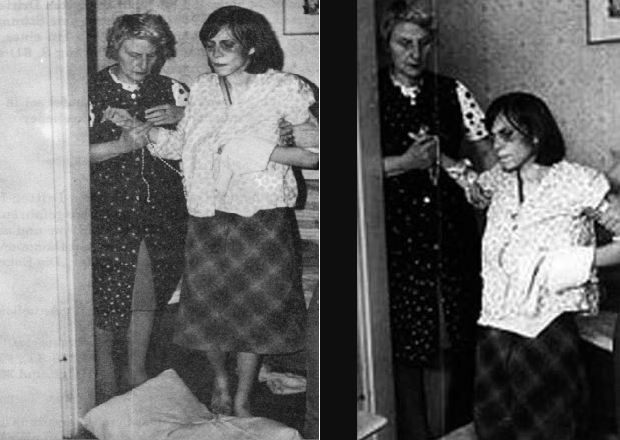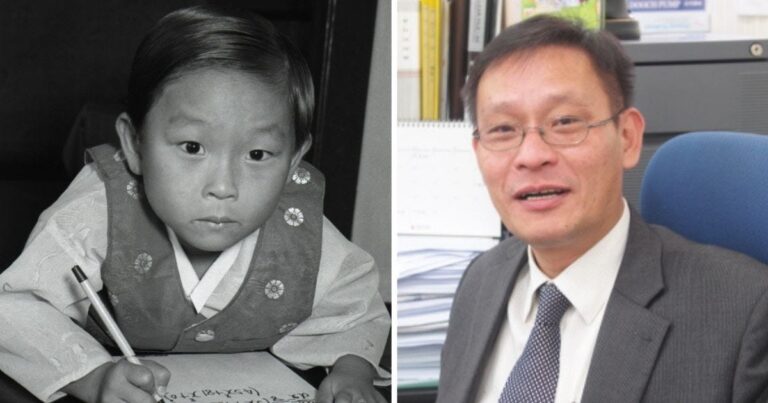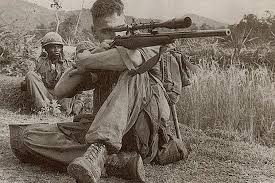Must-Read Books for Understanding World War I: Top Picks for History Enthusiasts
The Importance of Studying World War I
World War I, often referred to as the Great War, stands as one of the most pivotal events in modern history. The impact of this global conflict shaped the 20th century and beyond, influencing political boundaries, social structures, and international relations. To fully grasp the magnitude of WWI, it is crucial to delve into the narratives and analyses presented in books written by both historians and novelists.
Books on WWI not only provide a detailed examination of the events that transpired but also offer insights into the human experiences behind the statistics. They allow readers to understand the complex interplay of politics, economics, and personal stories that characterized the war. Engaging with these texts can enhance our comprehension of how this cataclysmic event continues to resonate in contemporary times.
Top 10 Books on World War I History
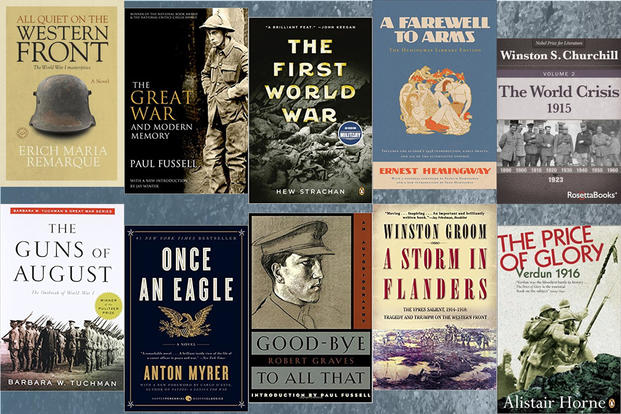
1. “The Guns of August” by Barbara W. Tuchman
Synopsis: Barbara W. Tuchman’s The Guns of August is a seminal work that explores the origins of World War I, focusing on the events of August 1914. Tuchman meticulously details the miscalculations and diplomatic failures that led to the outbreak of the war.
Key Themes and Insights: This book is renowned for its vivid portrayal of the political and military leaders of the time, as well as its detailed narrative of the initial stages of the war. Tuchman’s analysis emphasizes the role of poor decision-making and the lack of effective communication among European powers.
Why It’s a Must-Read: The Guns of August is celebrated for its narrative style and thorough research. It won the Pulitzer Prize for History in 1963 and remains a definitive account of the war’s early days.
2. “All Quiet on the Western Front” by Erich Maria Remarque
Overview: Erich Maria Remarque’s All Quiet on the Western Front is a classic anti-war novel that presents the harrowing experiences of a German soldier during World War I. The book provides a personal perspective on the brutality of trench warfare and the psychological impact on soldiers.
Themes and Historical Context: The novel explores themes of disillusionment and the senselessness of war. It offers a stark contrast to the more glorified narratives of wartime heroism, presenting a raw depiction of the human cost of conflict.
Impact on WWI Literature: This book is considered one of the most influential works on WWI, significantly shaping public perceptions of the war and its impact on soldiers.
3. “A Farewell to Arms” by Ernest Hemingway
Summary: Ernest Hemingway’s A Farewell to Arms is a semi-autobiographical novel set against the backdrop of WWI. It tells the story of an American ambulance driver in Italy and his love affair with a British nurse.
Literary Significance: Hemingway’s concise and powerful prose captures the emotional and physical toll of war. The novel reflects Hemingway’s own experiences in WWI and provides a poignant exploration of love and loss.
Reflection of WWI Experiences: The book offers a personal and emotional perspective on the war, highlighting the intersection of personal and political turmoil.
4. “The First World War” by John Keegan
Overview: John Keegan’s The First World War is a comprehensive single-volume history of the war. It provides a detailed analysis of military strategies, battles, and the overall conduct of the war.
Key Insights: Keegan’s work is known for its clear and engaging narrative, making complex military strategies accessible to general readers. The book covers the war’s impact on different fronts and provides a broad overview of its major events.
Comprehensive Analysis of the War: This book is valuable for those seeking a thorough understanding of WWI from a military perspective.
5. “The Sleepwalkers: How Europe Went to War in 1914” by Christopher Clark
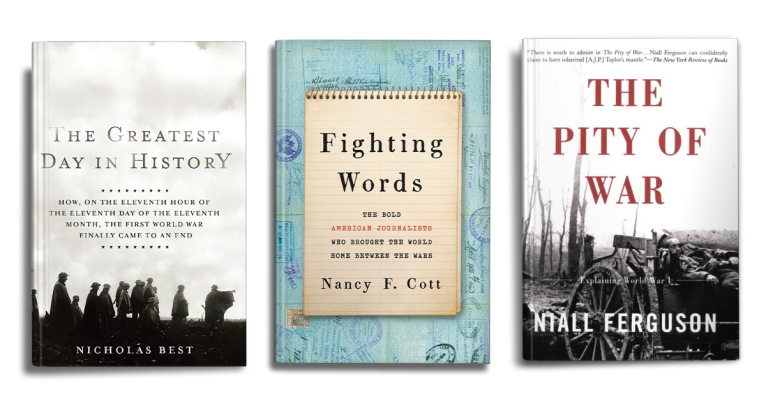
Summary: Christopher Clark’s The Sleepwalkers examines the complex series of events and decisions that led to the outbreak of WWI. Clark argues that the war was not the result of a single cause but rather a series of interconnected events.
Analysis of Causes and Events: The book highlights the role of various European powers and their interactions, providing a nuanced view of the factors leading to war.
Contribution to WWI Scholarship: Clark’s work challenges traditional narratives and offers new perspectives on the causes of WWI.
6. “1914: The Year the World Ended” by Paul Ham
Synopsis: Paul Ham’s 1914: The Year the World Ended focuses on the events of the first year of WWI, detailing how the war unfolded and its immediate consequences.
Detailed Account of the War’s Outbreak: The book provides an in-depth look at the early stages of the conflict, exploring how the war’s initial phase set the stage for the subsequent years of conflict.
Historical Importance: Ham’s detailed examination of 1914 helps readers understand the rapid escalation of the war and the initial experiences of those involved.
7. “To End All Wars: A Story of Loyalty and Rebellion, 1914-1918” by Adam Hochschild
Overview: Adam Hochschild’s To End All Wars focuses on the social and political aspects of WWI, highlighting the stories of individuals who opposed the war and those who fought in it.
Focus on Social and Political Impacts: The book explores the tension between loyalty to one’s country and personal moral convictions, providing a broader view of the war’s impact on society.
Unique Perspectives: Hochschild’s narrative includes the stories of anti-war activists and conscientious objectors, offering a diverse perspective on the conflict.
8. “World War I: A History” by J.M. Winter
Summary: J.M. Winter’s World War I: A History provides a concise yet thorough overview of the war. The book covers the major battles, political developments, and social changes that occurred during the conflict.
Historical Analysis: Winter’s work is praised for its clarity and depth, making it a valuable resource for both students and general readers interested in WWI.
Contribution to Understanding WWI: This book offers a comprehensive yet accessible introduction to the war.
9. “The War that Ended Peace: The Road to 1914” by Margaret MacMillan
Overview: Margaret MacMillan’s The War that Ended Peace explores the political landscape leading up to WWI, examining the decisions and events that set the stage for the war.
Insight into Pre-War Politics: MacMillan’s analysis of the diplomatic and political maneuvers leading to the war provides a detailed context for understanding the origins of the conflict.
Influence on Historical Interpretation: The book offers a fresh perspective on the causes of WWI, challenging readers to reconsider established historical narratives.
10. “Catastrophe 1914: Europe Goes to War” by Max Hastings
Synopsis: Max Hastings’ Catastrophe 1914 provides a detailed account of the first year of WWI, focusing on the military and political developments that shaped the early stages of the war.
Examination of the War’s Outbreak: Hastings’ book offers a gripping narrative of the initial conflicts and the strategic decisions made by key players.
Author’s Perspective: Hastings’ engaging writing style and thorough research make this book a compelling read for those interested in the early days of WWI.
How to Choose the Right WWI Book
Selecting the right book on World War I depends on your interests and objectives. Here are some factors to consider:
- Purpose of Reading: Are you looking for a comprehensive history, personal stories, or literary reflections on the war?
- Interest in Specific Aspects of WWI: Do you prefer military strategy, political analysis, or personal narratives?
- Author’s Expertise and Perspective: Consider the author’s background and approach to ensure it aligns with your interests.
Where to Find These Books
Bookstores and Online Retailers
- Recommended Online Platforms: Websites like Amazon, Barnes & Noble, and independent bookstores often have a wide selection of WWI books.
- Specialty Bookstores: Stores specializing in history or military literature may offer curated selections of WWI books.
Libraries and Academic Institutions
- University Libraries: Many universities have extensive collections of historical works, including those on WWI.
- Public Libraries: Local libraries may have both popular and academic books on WWI available for borrowing.
Frequently Asked Questions (FAQs)
What are the most influential books on WWI?
Some of the most influential books include The Guns of August by Barbara W. Tuchman, All Quiet on the Western Front by Erich Maria Remarque, and The First World War by John Keegan.
How can I find reliable sources for WWI history?
Reliable sources can be found through academic publications, reputable history books, and peer-reviewed journals.
Are there any recommended books for beginners interested in WWI?
For beginners, World War I: A History by J.M. Winter and The First World War by John Keegan are excellent starting points.
What makes a book a good choice for learning about WWI?
A good book on WWI provides thorough research, engaging narrative, and diverse perspectives on the conflict.
Can fiction provide valuable insights into WWI?
Yes, fiction such as All Quiet on the Western Front offers emotional and psychological insights into the experiences of those who lived through the war.
References:
- The Guns of August by Barbara W. Tuchman
- [All Quiet on the Western Front by Erich



